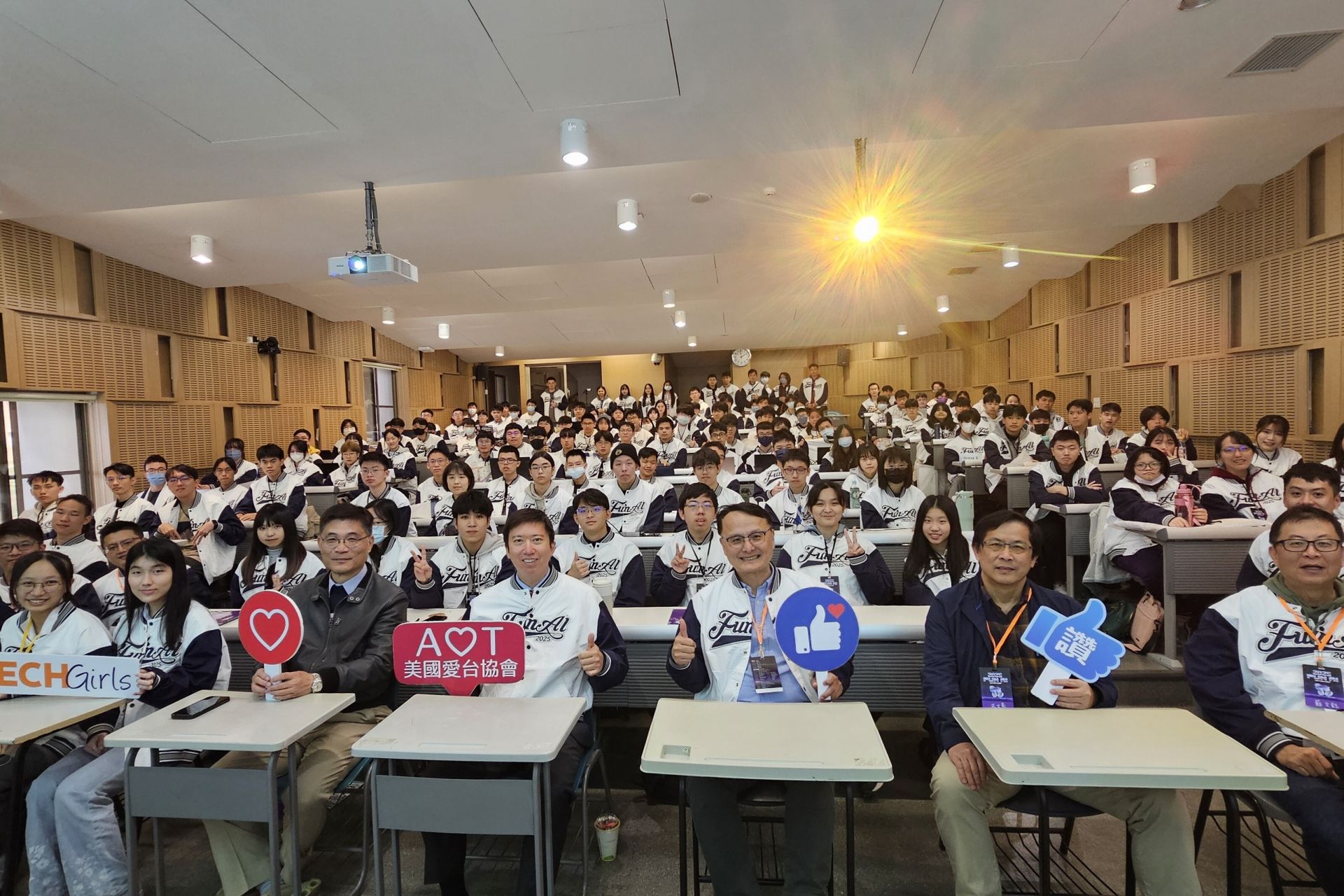NCKU Master’s Program on Techno Art Graduation Exhibition Open: “System Update in Progress — New Items Available for Update”
“When the notification pops up that new items are available for update, do we click ‘Update Now’ or ‘Remind Me Later’?”
According to the exhibition team of the NCKU Master’s Program on Techno Art (Class of 2023), system updates are not merely prompts for device maintenance, but more like requests to change our daily lives. In a fast-changing society and information landscape, people often find themselves hovering in the grey zone between choice and adaptation, exposing both their dependence on the past and unease about the unknown.
“System Update in Progress” features works by seven creators from the program, each starting from personal experience and observation to respond to contemporary issues hidden in everyday life. Topics span from environmental ecology, local revitalization, contextual transformation, and digitized memory, to virtual dreams, internet personas, and the coexistence of digital and traditional crafts. These works explore the space between the physical and the virtual, reflecting on individual roles and positions amid generational transitions. The exhibition is open through June 28.
During the opening remarks, Associate Director Hsuan-Cheng Lin of the Master’s Program on Techno Art stated that this is a moment full of creativity and achievement, marking the opening of the graduation exhibition for the class of 2023. Over the past two years, students have explored the boundaries of technology and art with passion and experimental spirit, demonstrating both creativity and critical thinking reflective of our time.
The graduation exhibition is not just a conclusion of academic learning, but a starting point for future exploration. Each work is a response to the world, a question to the future, and a vivid display of the interdisciplinary integration achieved within the program. The exhibition offers not only technical depth and creative breadth, but also a sensitive echo of personal, social, and global concerns.
“On the same day, the Industrial Design and Architecture departments also have exhibitions—it's great to see more and more creative exhibitions like this at NCKU,” said Associate Professor Wei-Chi Chien from the Department of Industrial Design. Now in its ninth year, the Master’s Program on Techno Art’s progress is encouraging. He wished the exhibition success and hoped that every student could carry the spirit of this rare journey forward, continuing to shine in future creative practices and carving their own paths.
“Memory Receipt” by artist Tzu-Yun Cheng is an interactive installation that explores digital memory and emotional detachment. Visitors can upload photos via a QR code at the venue, which are then translated into formatted “receipts” and printed. They can choose to take the receipt home or place it on the right side of the installation, where it will be burnt to black—a ritual to let the transformed memory vanish. The work reflects on a generation that outsources memory to the cloud and algorithms, compressing emotions into cold fragments of data, and questions whether users today are truly remembering—or merely recording.
“LOG IN …” by artist Tzu-Yen Lin uses cardboard, lights, and a printer as core materials to explore the daily rituals of digital natives. When we log in with an account and password, does that digital identity reflect our extended consciousness? As users construct multiple online personas, how do these identities define existence? The piece simulates a room where physical and digital overlap. Viewers “log in” through an interactive webpage by entering hidden verification codes within the light and shadow of the exhibit. Through repeated logins and logouts, identity becomes fragmented into strings of code, blurring personal boundaries. The process questions what is truly being “verified” in the virtual world.
“Re-creation・Update (sōsei 更新する) / Runway 2.0” by artist Ya-Ching Tu uses a runway as metaphor. Through mini-documentaries, the piece combines residents’ perspectives, natural imagery, and co-creative actions to explore human-place relationships and local revitalization. Landscapes and issues become protagonists in this artistic narrative. A cute pangolin headpiece is also available at the site, inviting audience interaction.
“A Place That May Exist” by artist Li-Ting Su is a spatial reinterpretation based on Yuan-Ming Tao’s Peach Blossom Spring. It recreates an ideal society of self-sufficiency and harmony, fused with elements from Alice in Wonderland. Guided by a rabbit, visitors explore different narrative endings—whether to pursue an ideal, cherish the present, or escape reality temporarily. The work invites visitors to complete the story themselves, embracing the consequences of each choice. Like Alice’s journey, it’s filled with the unknown and the unexpected, making the experience richer and more meaningful.
“Not Your Taste” by artist Ting-Yu Kuo transforms the exhibition space into a tea room using dried tea leaves, teaware, computer screens, and a label printer. The piece echoes the phrase: “It may not be your taste, but it's what others taste every day.” It examines how hidden emotions in language can ripple and hurt others. To make abstract emotional misunderstandings more tangible, the work constructs a system where language is translated into tea. Emotions in selected phrases are transformed into tea blends, inviting visitors to taste others’ feelings and reflect on the absurd gap between language and emotion.
“身體訂單 / Ordre du corps” by artist Kuan-Chen Li uses mixed media to explore a post-sea-level-rise world where land disappears. As humanity shifts from natural evolution to artificial body modification, the work questions whether the boundaries between human and non-human are gradually dissolving.
“拓界 / Expanding Boundaries” by artist Yi-Cheng Chang starts with hand-formed clay, which is then 3D scanned and reproduced using a robotic 3D printer. By combining the physical traits of ceramic with digital reproduction, the work challenges definitions of manual vs. mechanical. It presents a new form of human-machine craftsmanship, merging sensory perception and logic, and pushes the boundaries of traditional ceramics into the limitless possibilities of techno art.
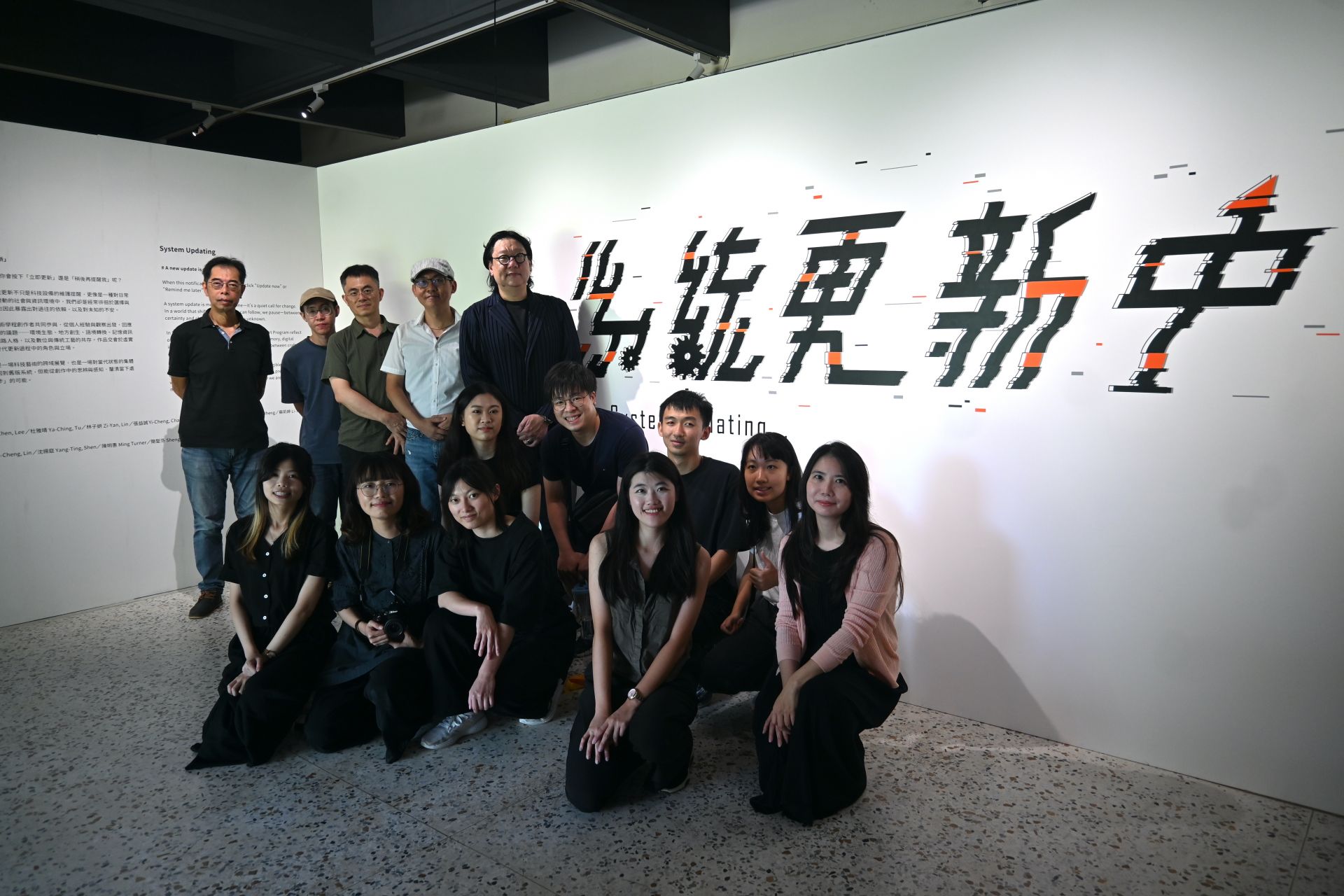
The 9th Graduation Exhibition of the Master’s Program on Techno Art at the College of Planning and Design, National Cheng Kung University, is now on view at the NCKU Art Center and will run until June 28
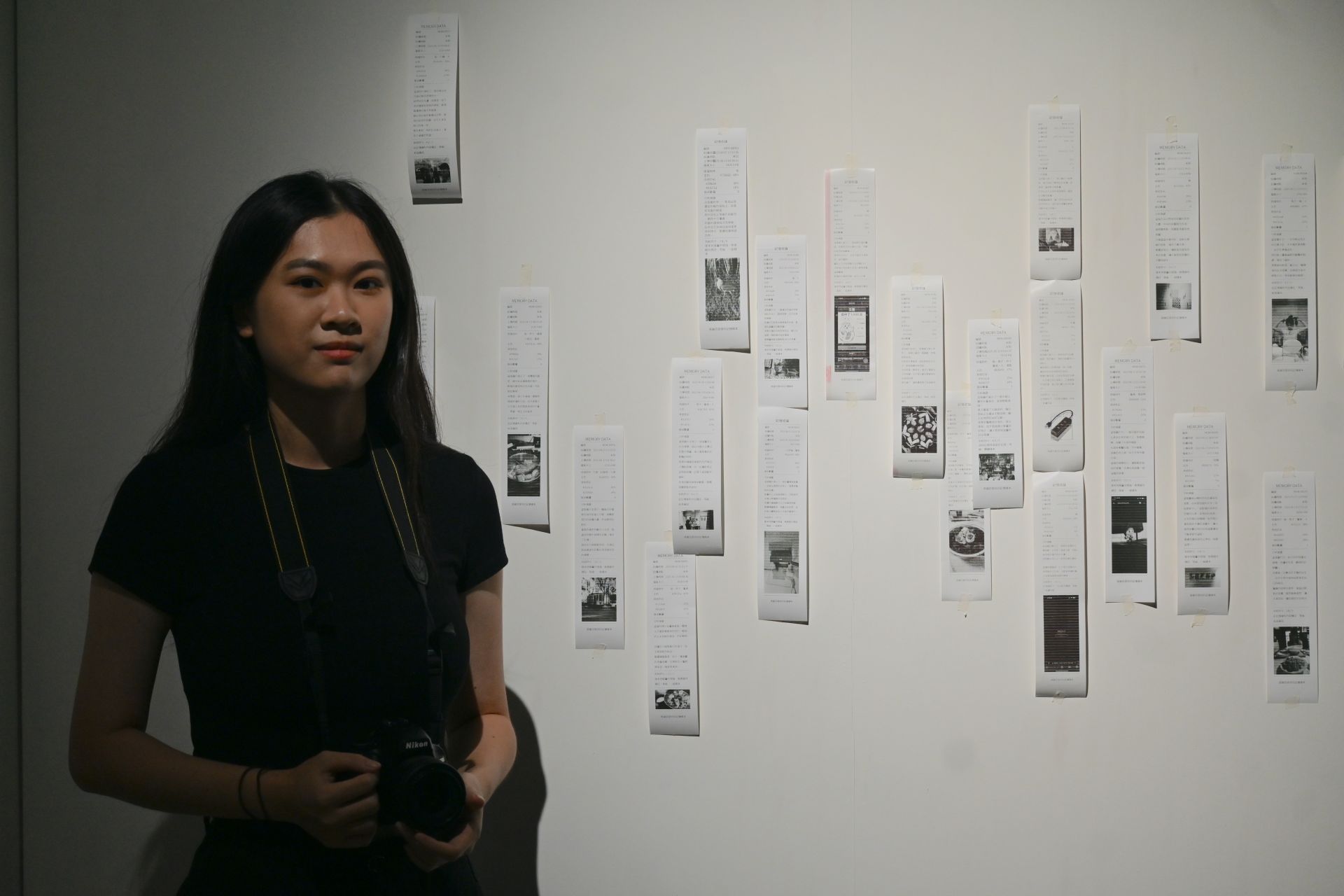
“Memory Receipt” by artist Tzu-Yun Cheng is an interactive installation that explores the themes of digital memory and emotional detachment
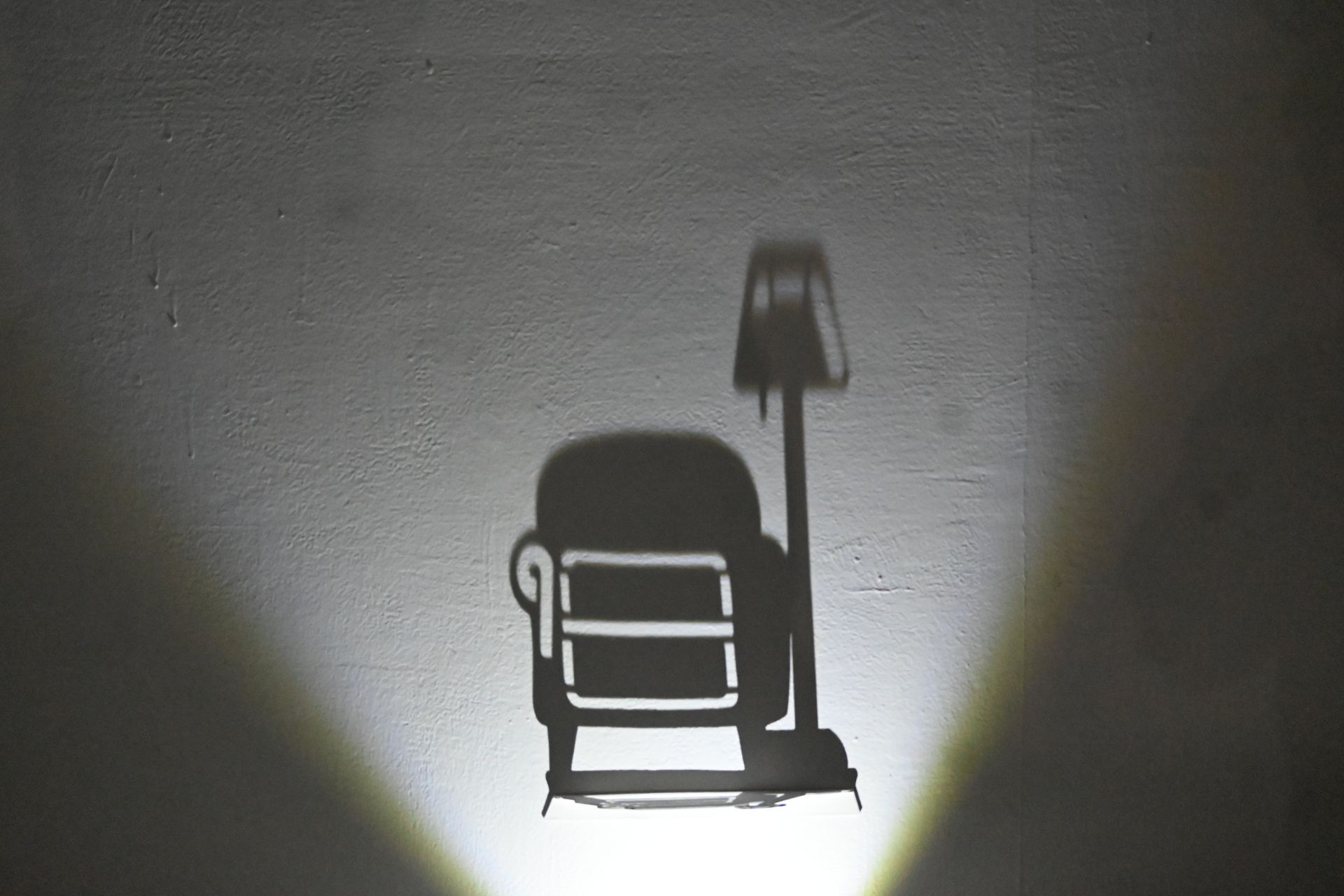
Artist Tzu-Yen Lin employs cardboard, lights, and a printer as her primary materials in the creation of her work titled “LOG IN …”
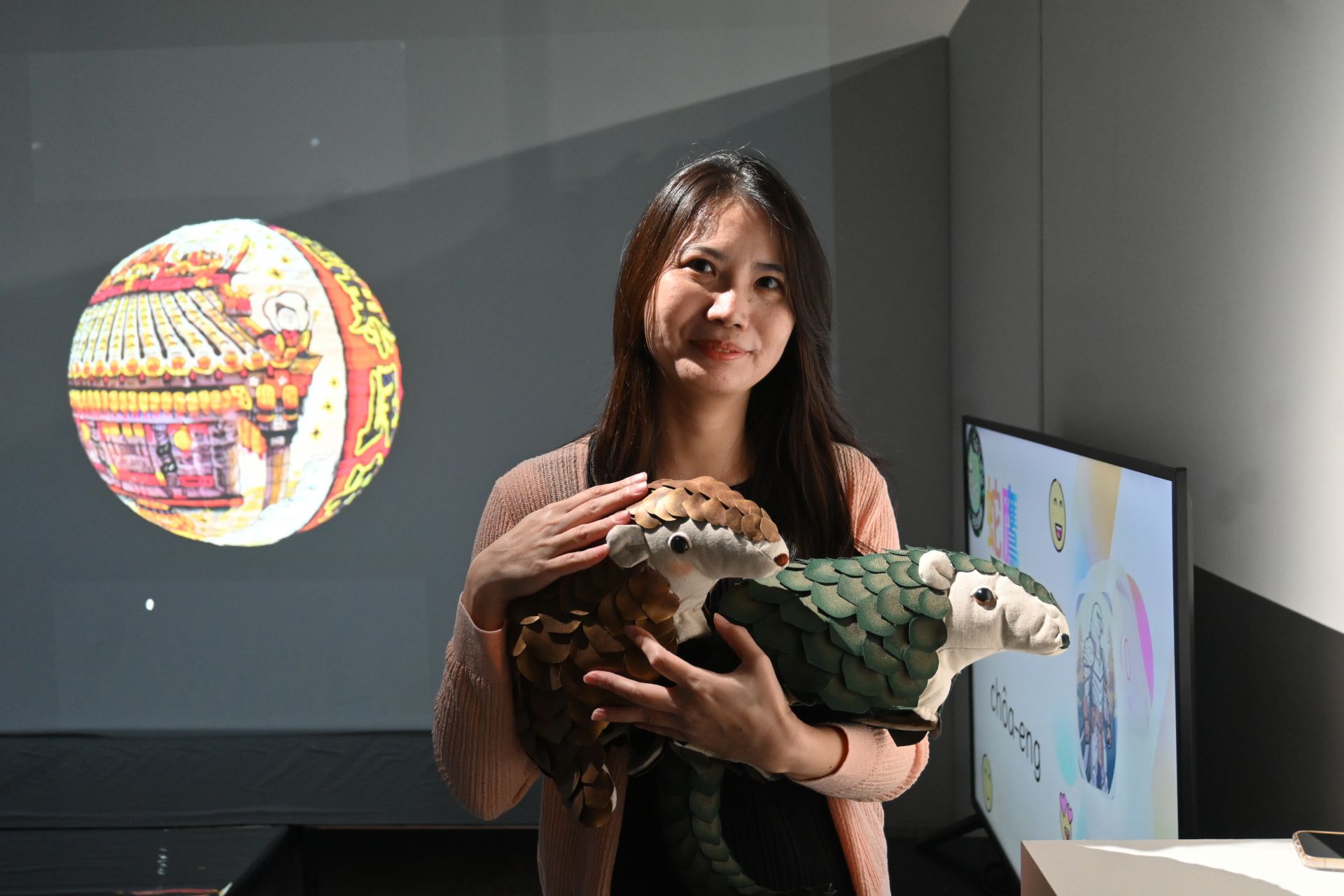
For her work “Re-creation・Update (sōsei 更新する) / Runway 2.0,” artist Ya-Ching Tu prepared an adorable pangolin headpiece to invite visitors to interact and participate in the experience
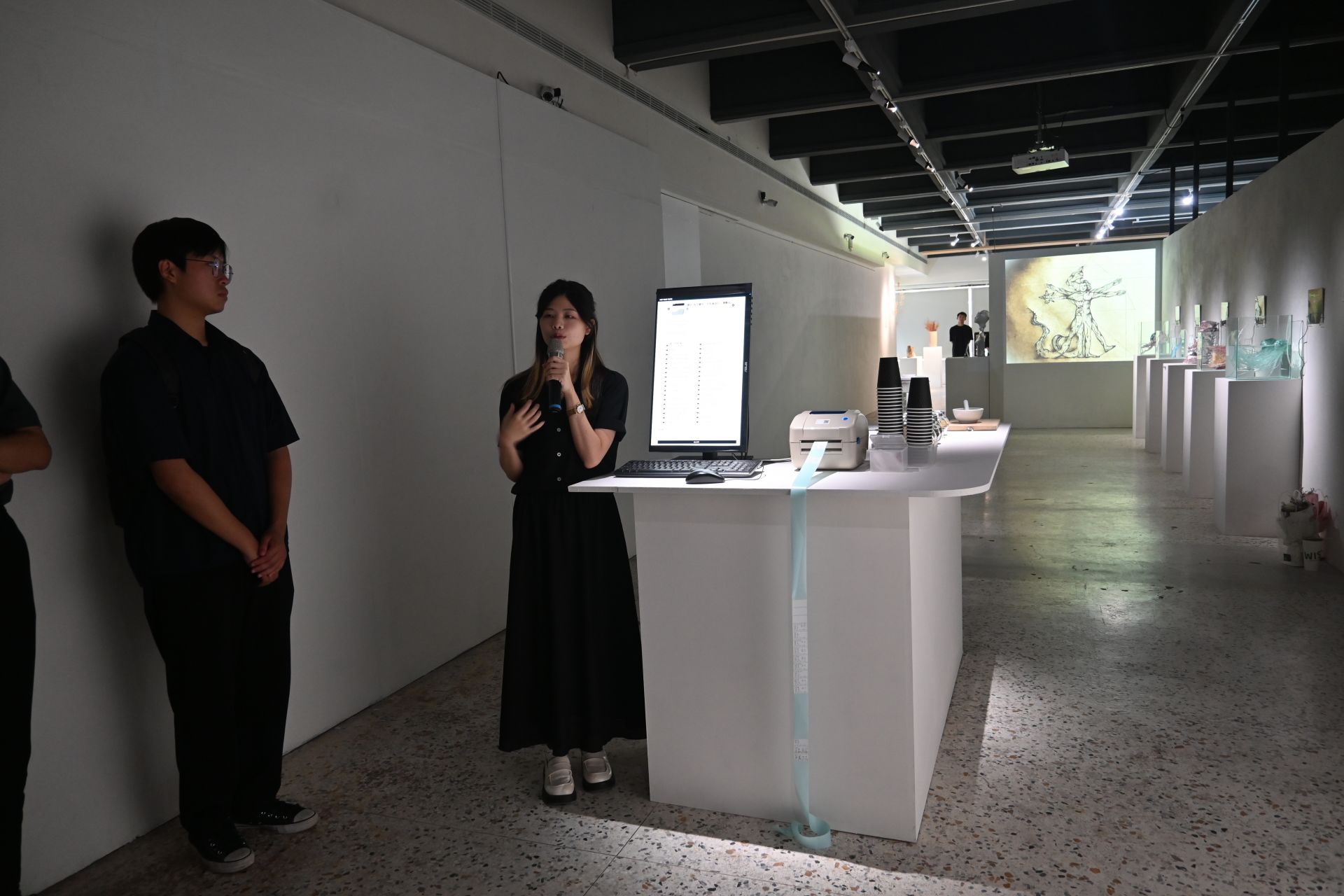
In her work “Not Your Taste,” artist Ting-Yu Kuo brings a traditional tea setting into the exhibition space
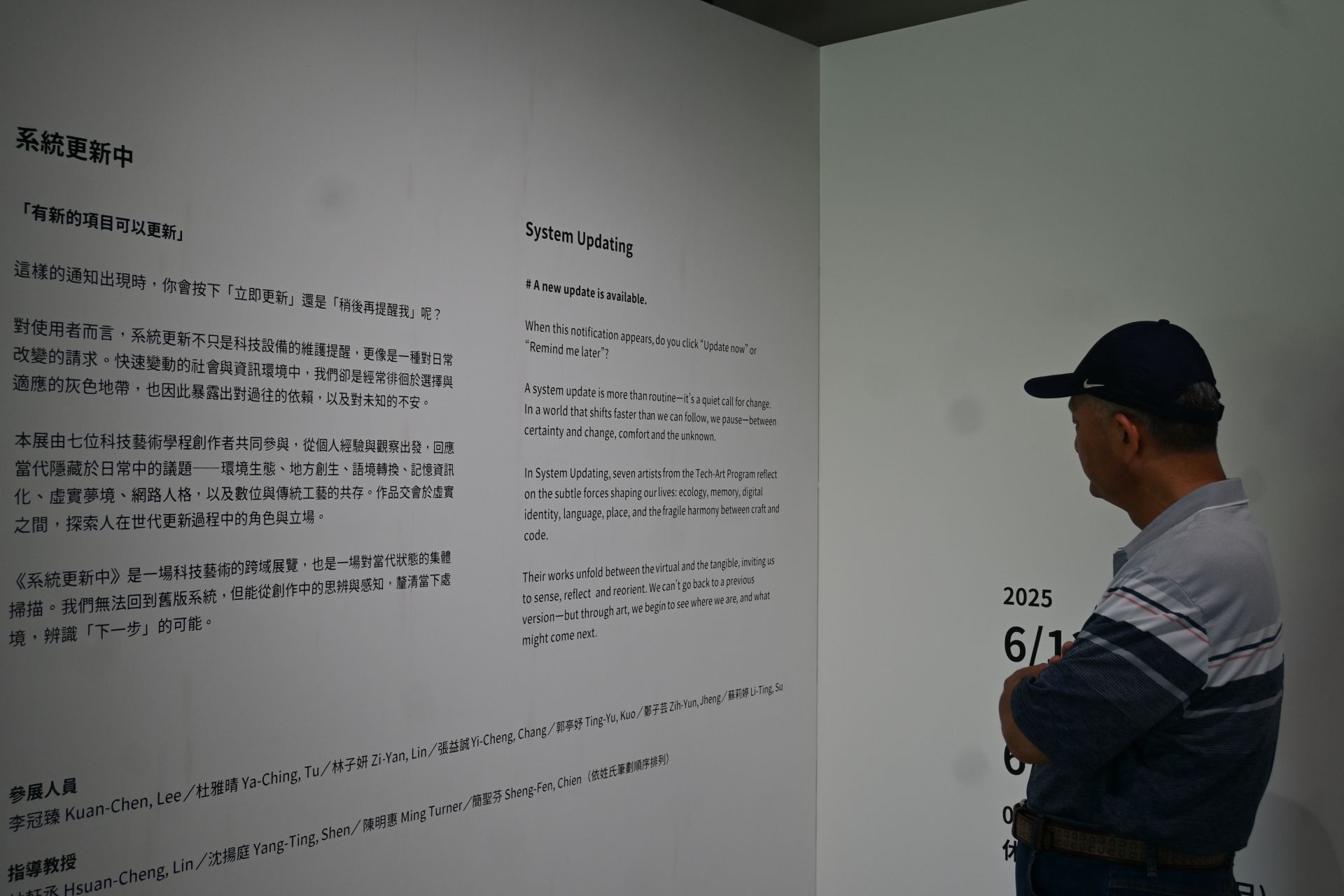
“System Update in Progress”, a group exhibition featuring seven creators from the Master’s Program on Techno Art, is now on view at the NCKU Art Center and will run until June 28

SDG4NCKU Signs Strategic Alliance with the Republic of China Military Academy to Enhancing R&D Competitiveness
View more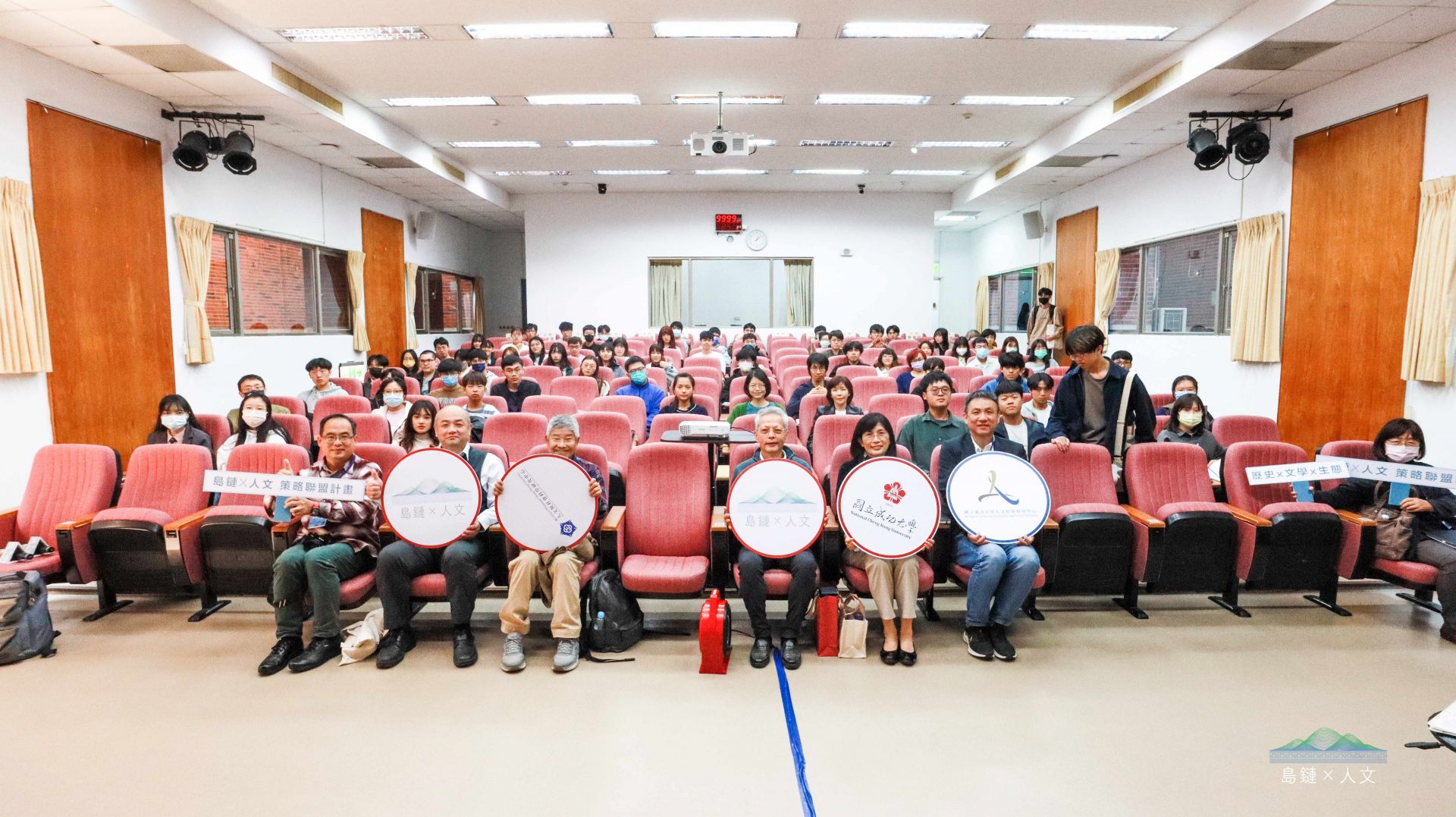
SDG4In NCKU's 2024 second "Island Chain of Thought" Lecture, Professor Yu-Feng Chen discusses Taiwan's ecology holistically.
View more